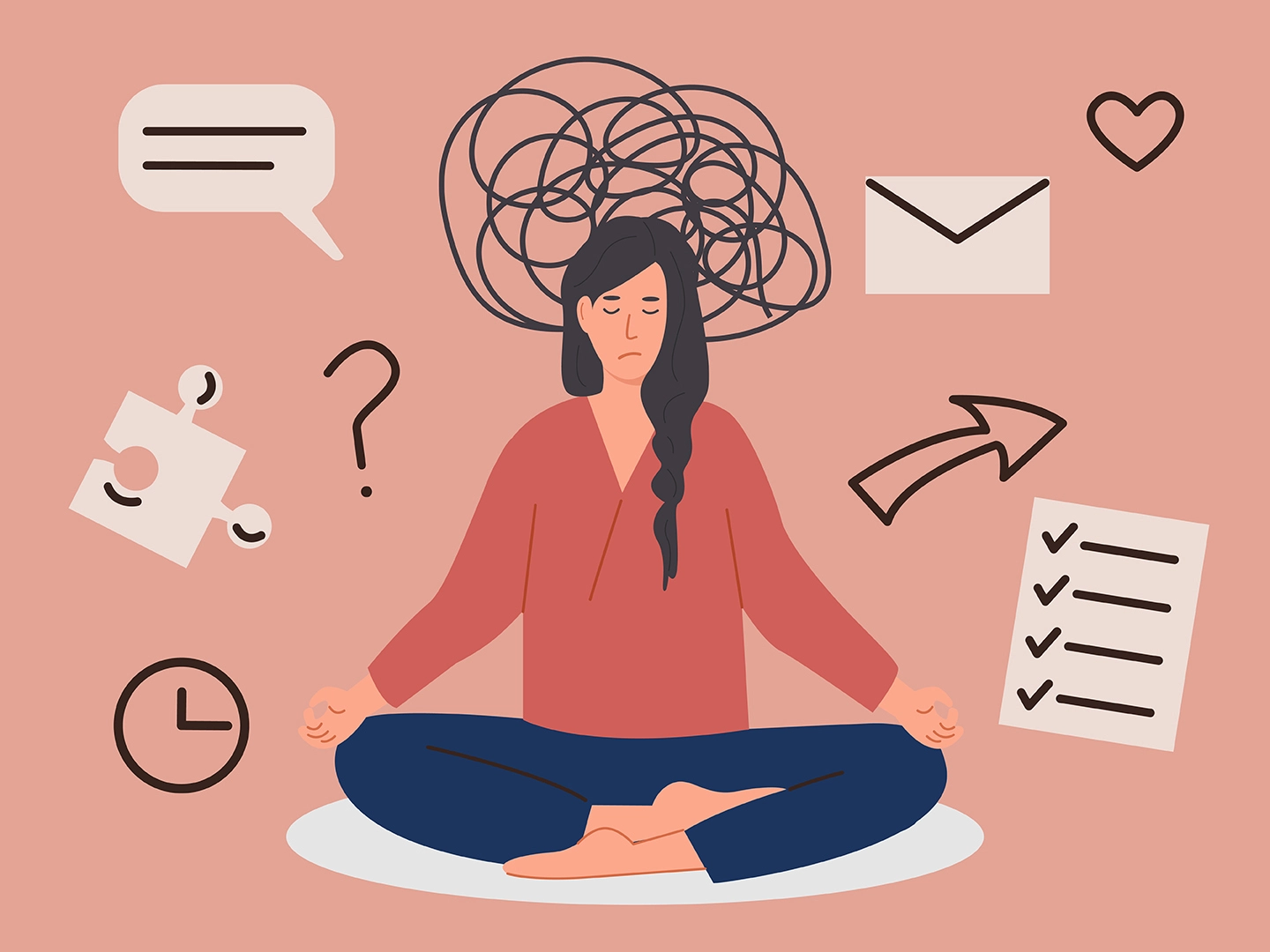ADHD affects an adult’s ability to focus and stay on task, making even simple activities feel overwhelming. Self-regulation, often called executive function, includes skills like planning, organizing, time management, and controlling impulses and emotions. For adults with ADHD, using these skills can be challenging. Improving executive function involves strategies like positivity, goal-setting, and practice. This guide offers actionable ways to build and strengthen these essential skills, which can improve focus, productivity, and overall well-being.
Understanding Executive Function and ADHD
Executive function refers to the skills that help people plan, make decisions, solve problems, and manage time. It’s the mental work involved in completing tasks and making choices. For adults with ADHD, executive function often doesn’t work as it should, leading to struggles with responsibilities at work, home, and in life. Common issues include difficulty delaying responses, forgetting things, acting impulsively, and emotional struggles like managing frustration or anxiety.
Despite these challenges, adults with ADHD can improve their executive function to work more effectively in both personal and professional settings.
Identifying Executive Function Weaknesses
To improve executive function, it’s important to first identify which areas are most problematic. Some signs of executive function problems include:
- Disorganization: Trouble keeping track of tasks, meetings, or personal responsibilities.
- Time Blindness: Difficulty estimating how long a task will take or missing deadlines.
- Emotional Overload: Feeling easily frustrated, anxious, or acting impulsively.
- Poor Working Memory: Frequently losing things or forgetting recent conversations or events.
- Difficulty Prioritizing: Doing tasks by how much interest there is rather than tasks that might be more urgent or important.
Recognizing these weaknesses can help ADHD adults focus on the right strategies to improve their executive function.
Procedures to Work on Chief Capability in ADHD Grown-ups
Improving executive function takes time, but with effort and the right strategies, adults with ADHD can make significant progress. Here are some practical approaches:
- Set Clear, Achievable Goals One of the best ways to enhance executive function is by setting realistic goals. Break big tasks into smaller, manageable steps. For example, instead of “clean the house,” break it down into tasks like “vacuum the living room” or “wash the dishes.” This helps reduce stress and stay focused without getting distracted.
- Use Visual Tools Visual aids like calendars, planners, and to-do lists can help ADHD adults stay organized. Use color-coding to prioritize tasks—red for urgent, yellow for less urgent, and green for long-term tasks. Post-it notes and time management apps can also be helpful reminders.
- Practice Time Management Techniques Time management is often the biggest challenge for ADHD adults. One effective strategy is the Pomodoro technique: work for 25 minutes, then take a break. This divides tasks into smaller, timed intervals, making it easier to concentrate. Using a timer or clock with seconds displayed can also create a sense of urgency.
- Develop Routines Creating routines can make decision-making easier. Plan your day with set times for work, breaks, exercise, and self-care. Having a daily schedule helps ADHD adults know what to focus on and reduces decision-making stress.
- Work on Emotional Regulation Managing emotions is a key part of executive function that can be hard for ADHD adults. Techniques like deep breathing, and writing down thoughts can help manage emotional overload and avoid impulsive reactions.
Building Long-Term Habits for Success
Improving executive function isn’t a one-time effort—it requires building long-term habits. Here are a few tips for maintaining progress:
- Consistency is Key: Stick to your routines and strategies, even when it’s hard. The more consistent you are, the easier it will become to maintain these habits.
- Celebrate Small Wins: Recognize and celebrate small accomplishments. Finishing even the smallest task can reduce the feeling of being overwhelmed.
- Look for Help: You don’t need to do it single-handedly. Talk to friends and family or work with an expert like an ADHD coach. Having somebody to help and guide you can have a major effect.
Conclusion
Improving executive function in adults with ADHD requires patience and persistence. Through goal-setting, using visual aids, managing time, building habits, and controlling emotions, ADHD adults can improve their focus, memory, organization, and planning skills. While challenges like procrastination, forgetfulness, and overwhelm may still occur, sticking to these strategies over time can help build a strong foundation for daily success. With effort and support through ADHD coaching, adults with ADHD can see real improvement in their ability to manage tasks and responsibilities.
FAQs
What is executive function in adults with ADHD?
Executive function refers to skills like planning, organizing, time management, and controlling emotions. These skills help people handle tasks and responsibilities, which can be difficult for adults with ADHD.
How can adults with ADHD improve their executive function?
Strategies include setting goals, using visual aids, applying time management techniques, developing routines, and learning to regulate emotions.
What are some common challenges ADHD adults face with executive function?
Common challenges include procrastination, forgetfulness, disorganization, difficulty prioritizing tasks, and emotional overload. These challenges can be improved with the right strategies and support.





